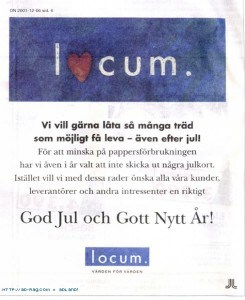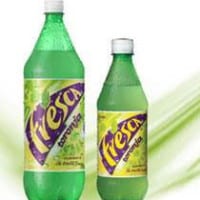Kate Robinson of Hogarth Worldwide: five classic global marketing blunders
The increase in brands’ international reach has led to a growth in international campaigns, bringing with it increased brand control, consistency and visibility. At the same time, international campaigns mean accommodating wide diversity, whether regulatory, cultural or linguistic.
And brands can still get things badly wrong in terms of product names, creative, copy and design. With the dominance of digital, comic or offensive slip-ups now risk spreading at lightning speed.
In terms of brands failing to cross-check against cultural sensitivities in other markets or meanings in other languages, here are some lesser-known classics.
Swedish company Locum – like most companies – sent their clients Christmas cards. One year they decided to brighten up their logo by replacing the “o” with a heart. Fair enough… but with unforeseen results, since Scandinavians tend to have a very good command of English. The subsequent body-copy message about sparing trees was lost in the aftermath; as one blogger noted at the time, “So far, nobody has read it.” A quick linguistic check could have flagged the unintended meaning.
Play it safe and check whether your product name means anything, or even sounds similar to anything, in the local languages of your target markets.
Take the apparently inoffensive ‘mist’ for example; in English, a thin fog or a layer of liquid produced by very small droplets of water, evocative of gentle early-morning landscapes. Alas, the same word means ‘manure’ in German.
Several companies have struggled to launch products in Germany as a result, including whiskey liqueur Irish Mist and Clairol’s Mist Stick curling iron. Rolls Royce’s Silver Mist model was swiftly and wisely renamed Silver Shadow, pre-empting another case of the mist hitting the fan.


Having launched its new range of Bundh sauces – spending around £6 million on a TV campaign to do so – Sharwoods were then informed to their dismay that ‘bundh’ in fact means ‘arse’ in Punjabi. Clearly not a great culinary association… It’s worth checking for unintended meanings in languages spoken by ethnic minorities in your home market too, especially if they’re part of your target audience.
Logos have equal potential to cause unintended offence. Amidst the heady times of the run-up to the 2012 Olympics, the London 2012 logo faced fierce and prolonged criticism. Iran suggested it spelt out the word ‘Zion’ and threatened to boycott the games. Others likened it to anything from a swastika to a sexual act by Lisa from The Simpsons.
Lessons learnt? Stare at your own designs long enough and you lose the ability to perceive them as others might. An element you intend as ‘dynamic’, a key colour that to you shouts ‘hope’, can be received very differently by people from other cultures. So cross-check logo designs too.
The launch in Mexico of soft drink Fresca caused a bit of a stir, given the product name is local slang for ‘lesbian.’ Too late to save the situation once your product is out there on the shelf! Grin and bear it perhaps; and check ahead next time.
These are just a few of similar advertising blunders, and new ones crop up all the time. If you have similar examples, we’d love to hear them.


(This is an updated version of an earlier post).













